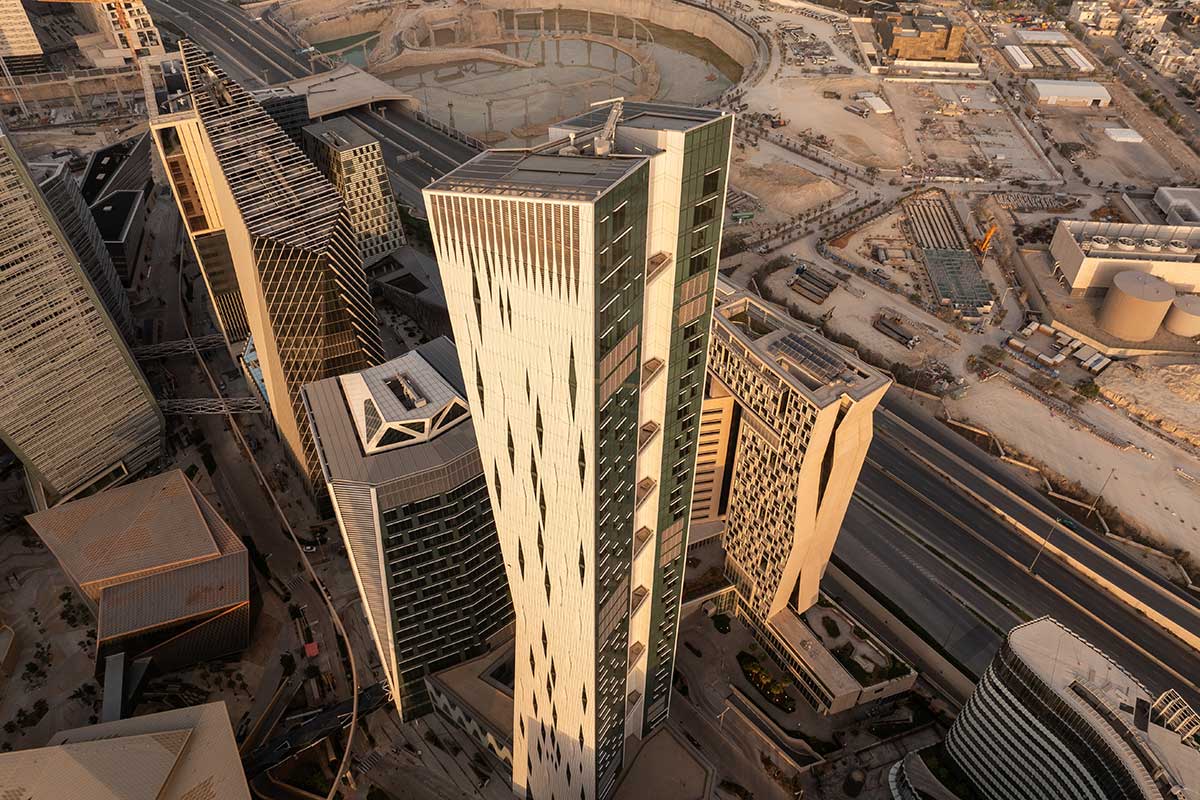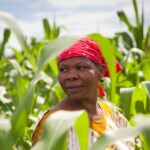When Saudi Arabia announced that foreigners could own property in Makkah, the news spread like wildfire across Nigerian Muslim communities. For many, it was an economic opportunity; for others, it was a spiritual awakening.
For years, thousands of Nigerian pilgrims who visited Makkah during Hajj and Umrah had struggled with the high cost of accommodation, overcrowding and limited access to convenient lodging near the Holy Mosque.
The announcement came alongside the unveiling of the King Salman Gate Project, a visionary initiative under Saudi Arabia’s Crown Prince Mohammed bin Salman.
This multi-purpose urban development, located close to Al-Masjid Al-Haram, promises not only world-class infrastructure but also the chance for foreign nationals, including Nigerians, to own a piece of property in one of Islam’s most sacred cities.
The King Salman Gate Project stretches over about 12 million square metres and is made to blend tradition and modern designs. It will have residential zones, business hubs, hotels and prayer halls capable of hosting a total of 900,000 pilgrims.
But beyond the grandeur, the project is a thoughtful response to concerns pilgrims have long suffered — from substandard housing facilities to logistical problems during peak pilgrimage seasons.
By allowing Nigerians and other foreigners to invest in the properties of Makkah, Saudi Arabia is responding to a long cry for increased planning and ease of access. It’s a realistic response cocooned in faith, offering Nigerians a chance to create fixed relationships with a city they very much adore.
Saudi Arabia has, over the years, introduced several other initiatives aimed at streamlining the pilgrimage process for Nigerians and making more possibilities available to foreign visitors.
Standing out among these is the Pilgrim Experience Program launched under Vision 2030 that specifically works to improve every step of the pilgrim process, from the issuing of visas to transport and accommodation.
Through this programme, the government streamlined visa issuance and expanded e-services to enable faster approvals, eliminating administrative hurdles that put stress on pilgrims.
In the same vein, the construction of the Makkah Metro system and improved public transport infrastructure have significantly eased congestion, making pilgrims free between locations. The King Salman Gate Project improves on these existing measures by combining accommodation, culture, and heritage into a single sustainable urban design.
Another key solution already transforming Makkah’s landscape is the project of restoring and maintaining heritage sites. The use of 19,000 square metres of preserved historic sites in the project ensures development doesn’t destroy identity. This is part of a larger Saudi agenda that values cultural continuity amid modernisation.
For Nigerian pilgrims who are likely to view Makkah as a spiritual affiliation rather than a destination, this project adds more emotive value to the experience. Second, sustainable design aspects in the project, such as energy-efficient buildings and smart infrastructure, show a conscious move towards a greener world, one which other religious monuments could emulate.
Nigerian efforts align with Saudi reforms
A few indigenous solutions also found expression in the Nigerian context to structure and make pilgrimage housing cheap. The National Hajj Commission of Nigeria (NAHCON) has, over time, improved saudi agency coordination, making it easier for pilgrims to move around and receive better accommodation.
Several states have even organised cooperative saving schemes, whereby intending pilgrims save incrementally towards their Hajj expenses over a number of years. This paradigm of financial inclusion has harmonised the economic burden and improved Hajj management transparency.
With Saudi Arabia’s reforms, these Nigerian efforts create an increasing ecosystem of solutions addressing the same fundamental issues, which are accessibility, affordability and dignity of pilgrimage.
More generally, Saudi Arabia’s new policy of property represents a new era of international cooperation. For Nigerian businessmen, Islamic scholars and investors, this represents possibilities for real estate partnerships and moral investments based on Islamic finance principles.
Banks like Jaiz Bank and Taj Bank can provide Sharia-compliant mortgage and financing facilities to Nigerians desiring to acquire property in Makkah, where spirituality intersects economic empowerment. It’s a model that makes the economy closer to faith.
The King Salman Gate Project, in addition to other reforms already underway, offers an appealing vision of inclusion and innovation.
Saudi Arabia isn’t just building structures; it is establishing a new paradigm for coexisting faith, culture and growth. For Nigeria, the report is an invitation to mutual growth and greater spiritual identity.
Summary not available at this time.






